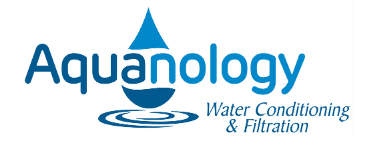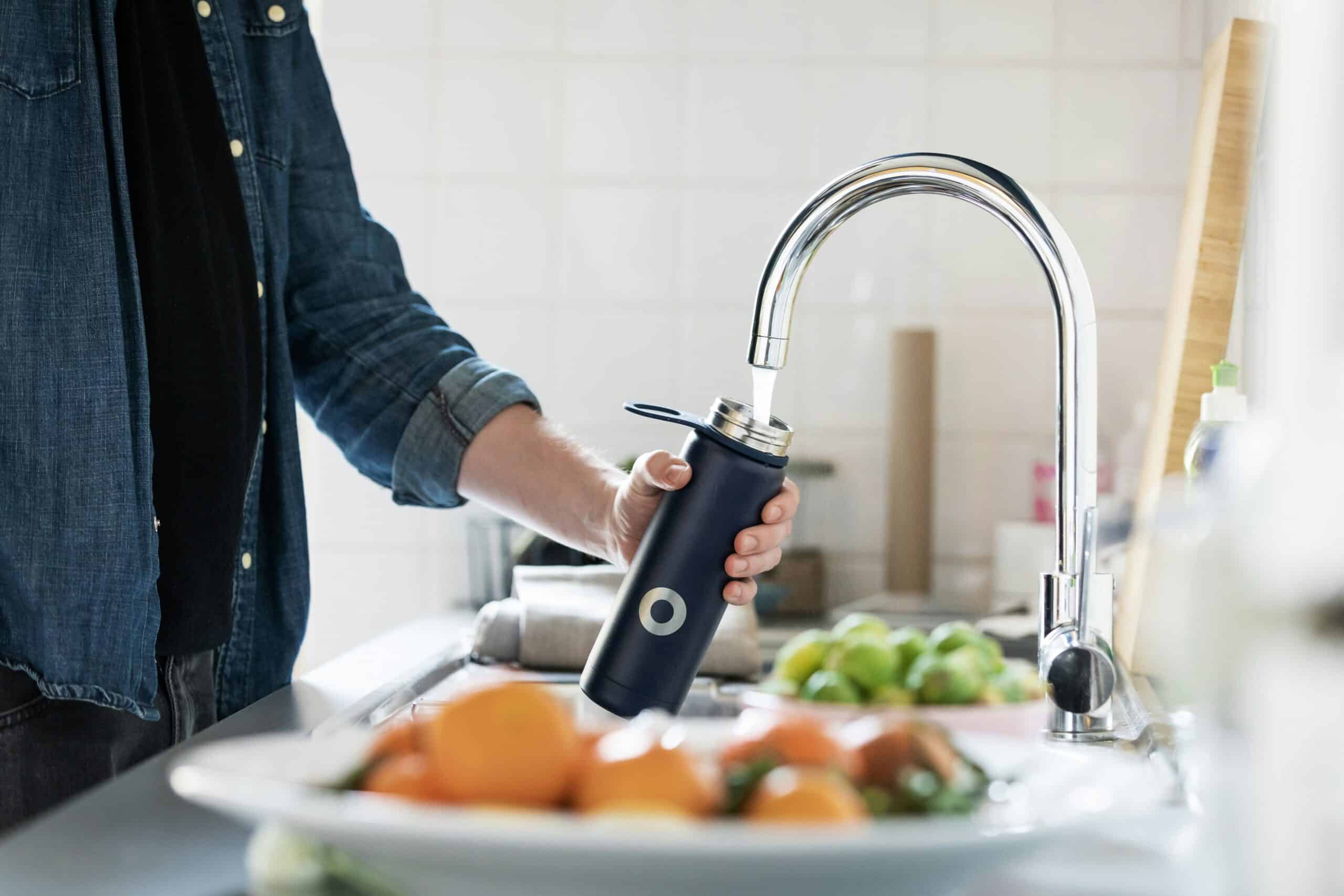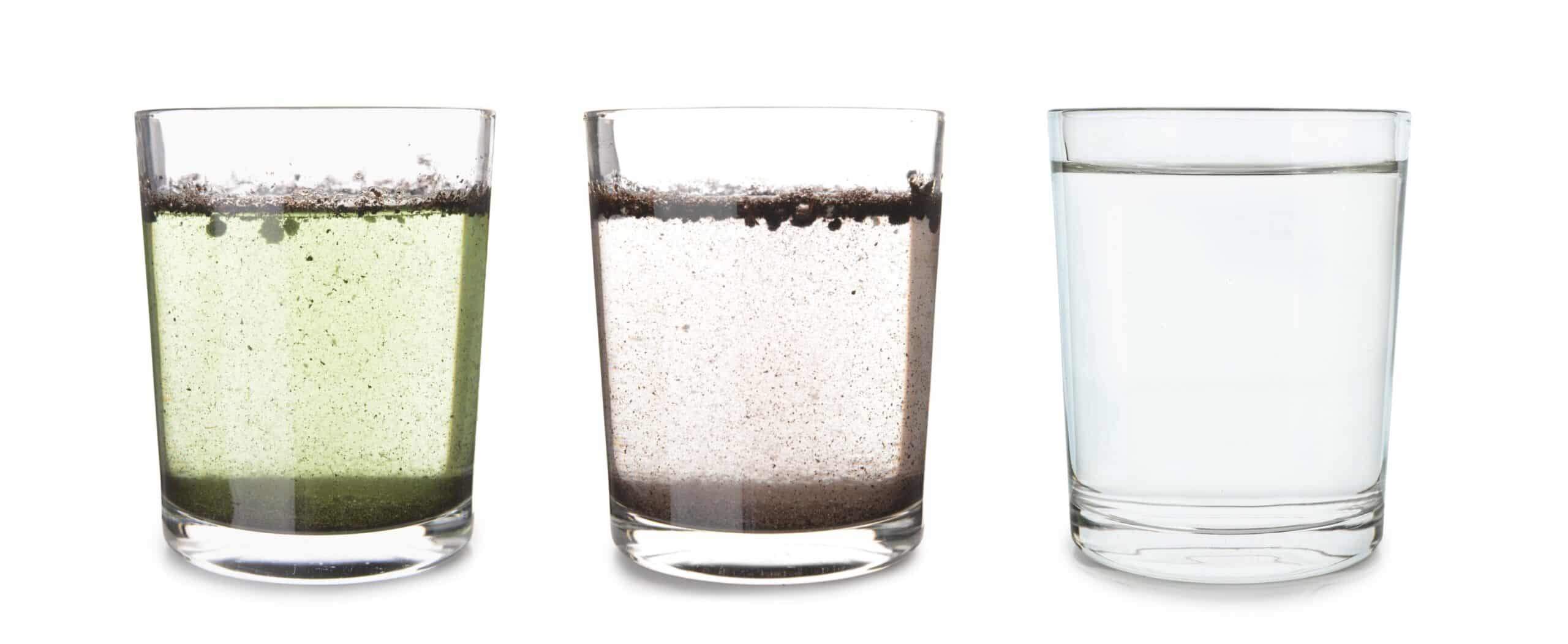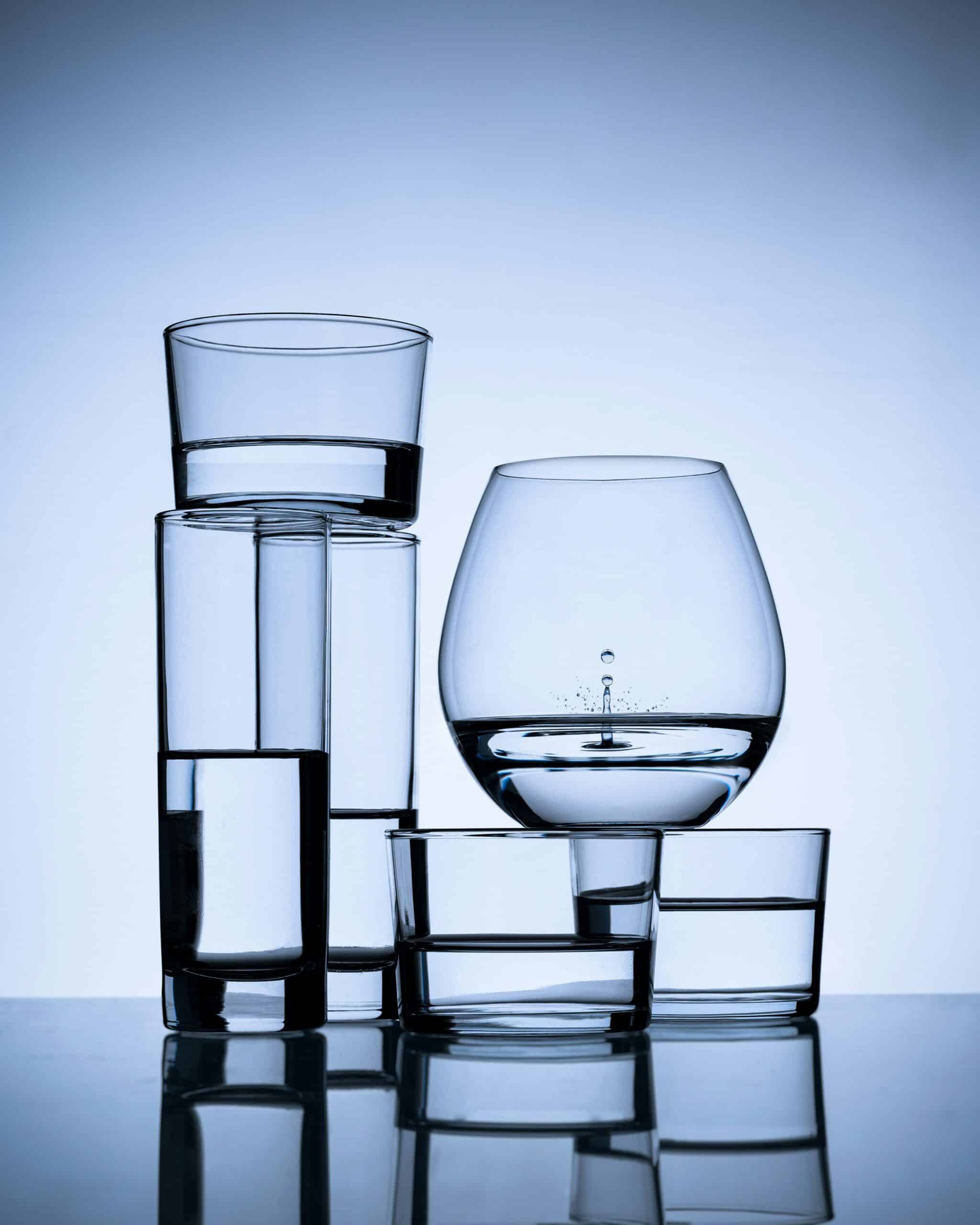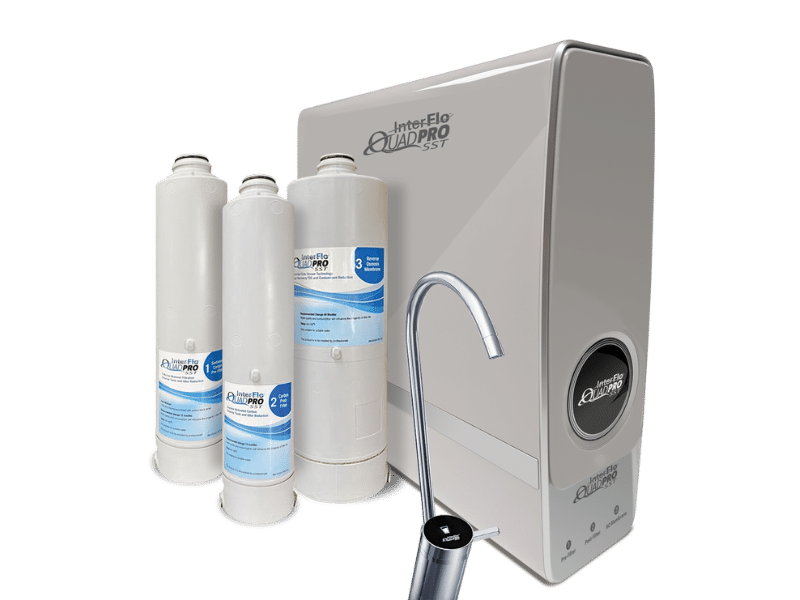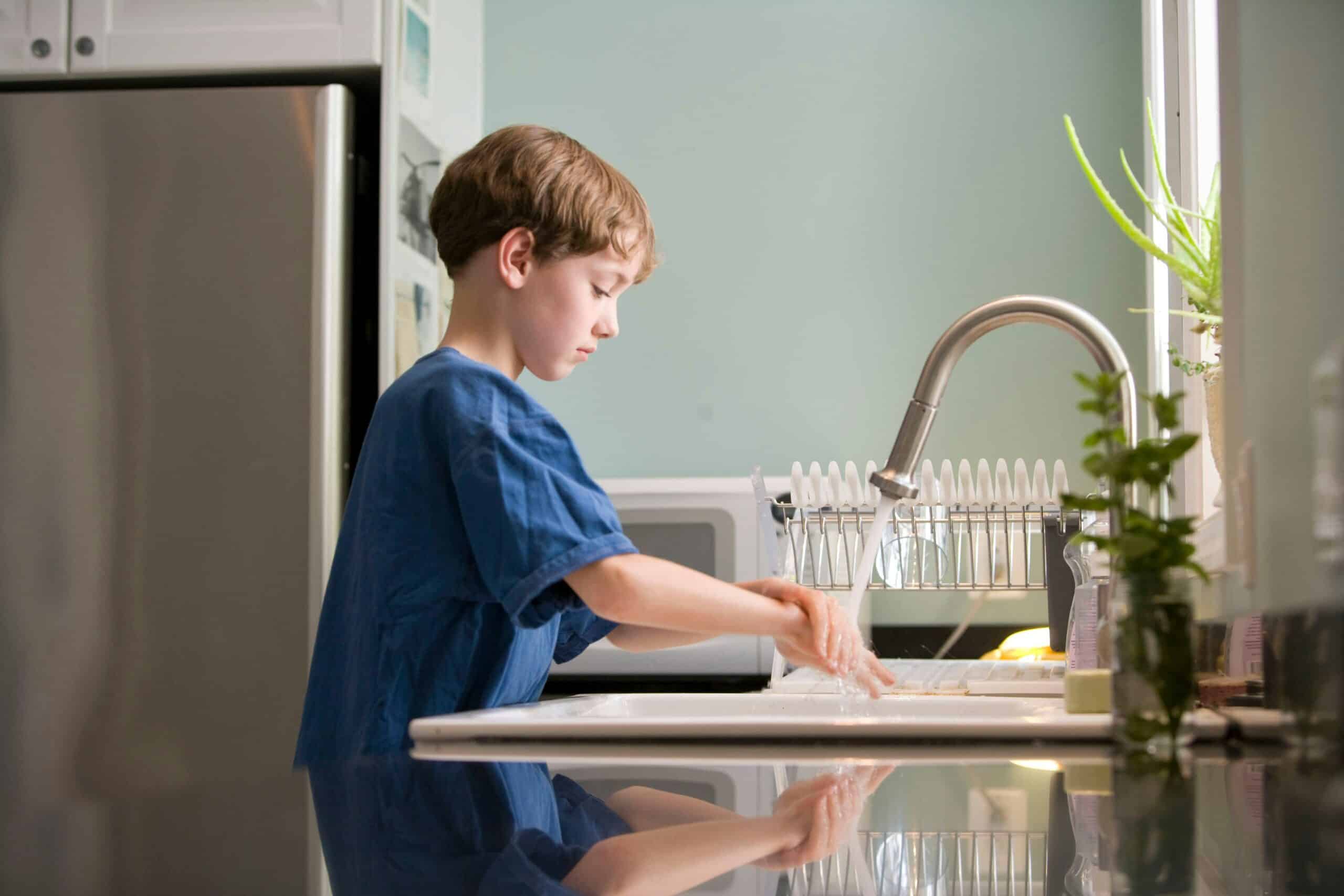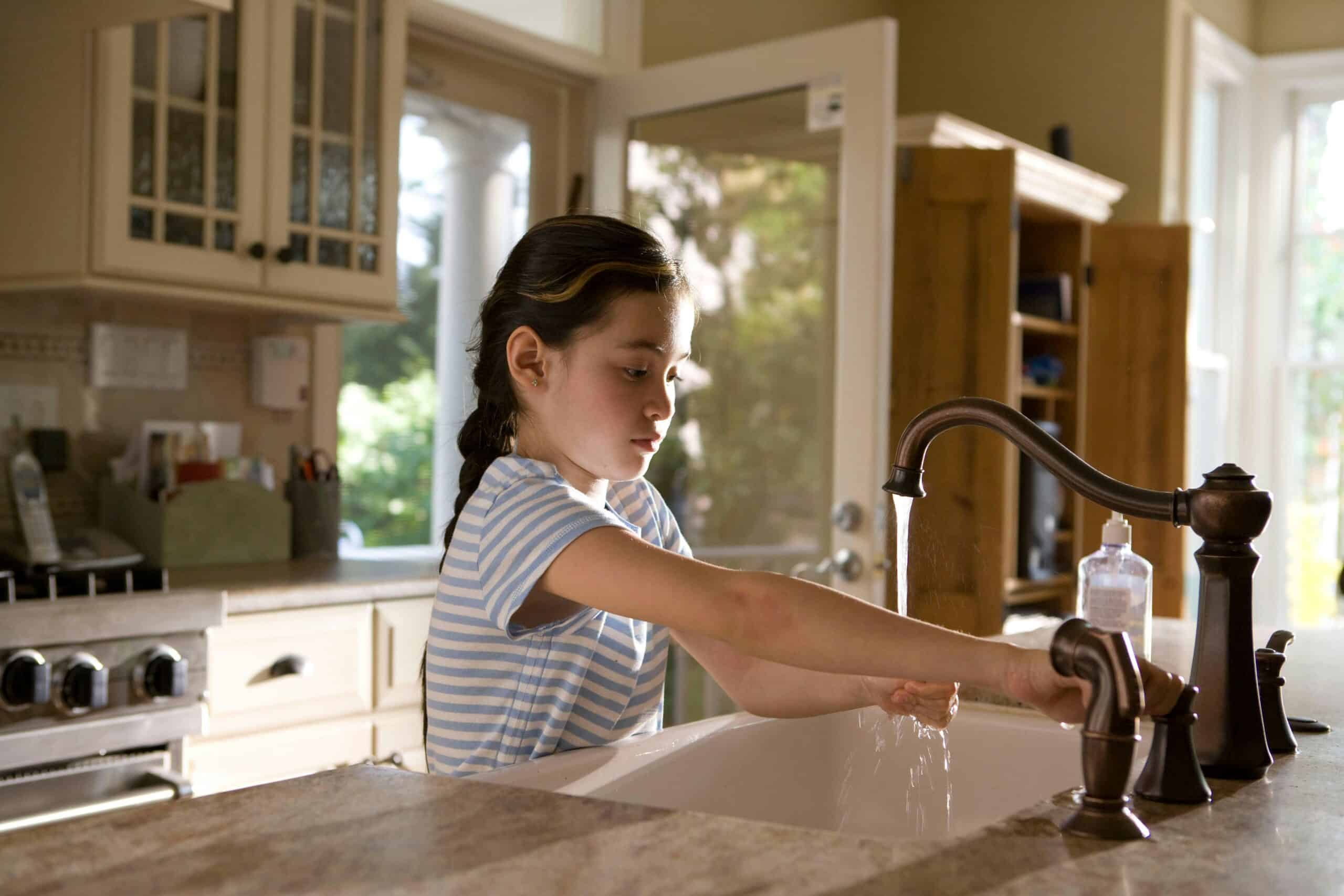“How can I tell if water is soft or hard?” If you find yourself asking this question, you’re in the right place. Hard water is something we are all familiar with, even if we don’t know it. It appears as water spots on glasses, and a white chalky buildup on faucets. But, how is hard water formed? Hard water is created when rainwater, which starts off soft, seeps through the ground and absorbs minerals like calcium and magnesium from limestone, chalk, or gypsum. This is similar to a sponge soaking up these minerals as it moves through the earth. The more minerals the water absorbs, the “harder” it becomes. By the time this water reaches our homes, it carries these extra minerals, leading to familiar household issues like soap not lathering well, scale buildup in pipes, and reduced efficiency of appliances like water heaters and washing machines. Here are seven signs that indicate your home might have hard water, and could benefit from a water softener.
1. Mineral Buildup on Faucets and Shower heads
Have you noticed a chalky residue on your water outlets? This buildup is primarily due to hard water minerals like calcium and magnesium, which remain after water evaporates. Not only does this increase your cleaning efforts, but in severe cases, it can damage or block your plumbing, leading to expensive repairs. A water softener removes these hardness minerals, enhancing the longevity of your faucets, reducing cleaning time, and maintaining their appearance.
2. Spots on Glassware and Utensils
If your dishwasher leaves water spots on glassware and utensils, hard water could be the culprit. These spots result from the same minerals that build up on your faucets. Softened water eliminates these minerals, ensuring your dishes come out of the dishwasher squeaky clean and sparkling, without the need for additional drying.
3. Ineffective Soaps and Cleaners
Hard water can reduce the lathering ability of soaps and cleaners, resulting in excessive usage to achieve desired cleanliness. A water softener reduces soap consumption, providing efficient cleaning and potentially enabling the use of more cost-effective cleaning products.
4. Appliance and Water Heater Malfunctions
Appliances and water heaters that utilize hot water are often the first to be impacted by hard water. Water heaters affected by hard water frequently require replacement, or require heating element changes every few years. This is an avoidable expense. Hard water also negatively affects appliances such as dishwashers and washing machines, leading to costly repairs or replacements. Even toilets, which use cold water, can suffer from leaky seals due to hard water. To prevent premature failure of these appliances and water heaters, it’s advisable to invest in a water softener. Seeing a water softener as an investment rather than an expense is sensible because a water softener can save money over time.
5. Decreased Water Heater Efficiency
Water heaters in homes are less energy-efficient when dealing with hard water, which is water containing high amounts of minerals like calcium and magnesium. This mineral buildup, similar to the white, chalky deposits you might see on taps, also forms inside water heaters. This buildup acts like a barrier, making it harder for the heater to warm the water, thus using more energy.
For example, if your water heater normally uses a certain amount of energy (measured in BTUs, a unit of heat) to heat water, with hard water it needs to work harder – about 25% more, according to a study by New Mexico State University. Read the Water Softeners as Energy Conserving Investments study summary for more details. This study observed water with modest levels of hardness between 9.4 and 14.3 grains per gallon. (Grains per gallon of hardness is an industry-standard method for measuring these mineral levels.)
In practical terms, this means that a water heater in a home with hard water will use more energy, similar to how a car with under-inflated tires uses more fuel. This results in higher energy bills and more frequent maintenance due to the mineral buildup. By using a water softener, which removes these minerals, you can keep your water heater working efficiently, reduce the need for repairs, and ultimately save money on energy bills.
6. Dry Skin and Hair Post-Shower
Hard water, often combined with chlorine, can contribute to dry skin and hair. Installing a water softener can lead to a more luxurious shower experience, less body wash usage, and noticeably softer skin and hair.
7. Laundry Issues
Laundry doesn’t fare well with hard water, as evidenced by a 1991 study from Purdue University which found that clothes washed in hard water wear out 15% faster. This happens because the minerals in hard water, primarily calcium and magnesium, interfere with soap and detergent dissolution. It’s like trying to wash dishes in water with dissolved chalk; the soap doesn’t lather well and leaves a residue.
In laundry, this residue, known as soap curd, clings to the fibers of the clothes, making them stiff and brittle over time. As a result, colors fade, and whites can become stained.
Switching to softened water for laundry can make a big difference. Softened water, free of these harsh minerals, allows detergents to dissolve properly, resulting in cleaner, softer clothes. Imagine the comfort of soft, fluffy towels that last longer, all thanks to using a water softener for your laundry.
Concluding Advice
Deciding on a water softener, particularly a professional-grade one, is a significant decision. It’s vital to ensure that your investment will yield tangible benefits. At Aquanology, we’re dedicated to guiding homeowners through this decision-making process. To accurately determine your water hardness, a simple onsite water test is recommended. If you’re considering a water softener or other water quality improvements, reach out to us for a free consultation. We offer a range of tests, from complimentary in-home assessments to comprehensive laboratory analyses. Combined with our straightforward, no-pressure consultations, we aim to empower you to make well-informed decisions for superior home water quality
